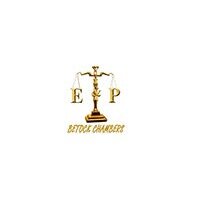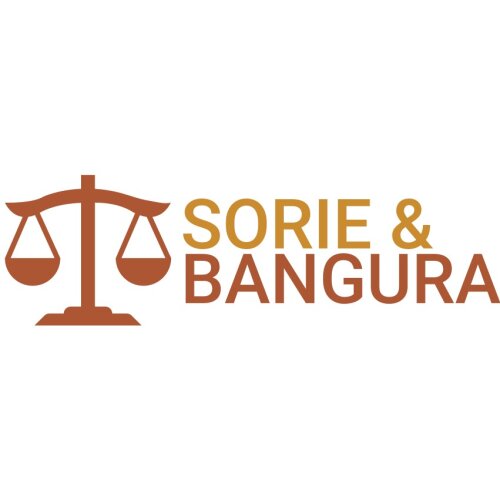Best Acquisition / Leveraged Finance Lawyers in Freetown
Share your needs with us, get contacted by law firms.
Free. Takes 2 min.
List of the best lawyers in Freetown, Sierra Leone
About Acquisition / Leveraged Finance Law in Freetown, Sierra Leone
Acquisition and leveraged finance refers to the specialized area of law that governs how businesses or investors obtain funding to acquire other companies, assets, or stakes in businesses, frequently using borrowed money or leveraging assets as collateral. In Freetown, Sierra Leone, this practice is gaining prominence as the economy grows and more local and international entities seek investment opportunities. The legal framework governing acquisition and leveraged finance in Sierra Leone features a combination of statutory requirements, banking regulations, and commercial law principles, making it essential for investors and lenders to understand applicable rules and best practices.
Why You May Need a Lawyer
Engaging in acquisition or leveraged finance transactions in Freetown presents several legal complexities. A lawyer with expertise in this field can help you navigate crucial stages such as conducting due diligence, negotiating and drafting transaction documents, addressing regulatory compliance, and managing risks. Common situations where you may require legal assistance include:
- Negotiating loans for acquiring businesses or assets
- Ensuring security interests are properly registered and enforceable
- Structuring deals to comply with local and cross-border regulations
- Reviewing or drafting share purchase agreements and loan contracts
- Facilitating dispute resolution in case of conflicts between parties
- Advising on tax implications of financing arrangements
- Protecting interests when multiple lenders or syndicates are involved
Local Laws Overview
Several legislative frameworks and regulatory authorities shape acquisition and leveraged financing in Freetown, Sierra Leone. Key legal aspects include:
- Companies Act, 2009 - Outlines how companies are formed, merged, or acquired, including relevant disclosures and procedures
- Banking Act, 2019 - Sets out rules for lending and the operations of banks and financial institutions
- Central Bank of Sierra Leone Regulations - Governs monetary controls, lending, and foreign exchange regulations impacting cross-border deals
- Collateral Registry Act, 2010 - Establishes the requirements for registering security interests over moveable property
- Contract law - Based on English common law principles, governing agreements and the enforceability of financial contracts
- Tax laws - Outline withholding tax, stamp duty, and other fiscal obligations linked to acquisition and finance deals
- Anti-Money Laundering Laws - Requiring due diligence on the source of funding and purpose of transactions
Any party seeking to acquire or finance a transaction must adhere to these rules to avoid regulatory penalties and ensure the enforceability of agreements.
Frequently Asked Questions
What is acquisition finance?
Acquisition finance is the process of obtaining funds, usually through loans or credit facilities, to purchase a company or its assets, often involving complex legal and financial arrangements.
What is leveraged finance?
Leveraged finance involves funding a business acquisition primarily using borrowed money, with the purchased company’s assets or cash flow often serving as collateral for the loan.
What are the main legal risks in acquisition and leveraged finance in Sierra Leone?
Legal risks include non-compliance with regulatory requirements, unenforceable contracts, failure to register security interests, tax issues, and potential disputes over ownership or liabilities.
Do I need government approval for business acquisitions?
Some acquisitions, especially those involving regulated sectors or foreign investors, may require approval or notification to bodies such as the Central Bank of Sierra Leone or the Corporate Affairs Commission.
How do I protect my interests when lending or borrowing?
Work with a lawyer to ensure all security interests are registered with the Collateral Registry, agreements are clear and enforceable, and required documentation is in order.
Are there restrictions on foreign ownership or financing?
Certain sectors may restrict foreign ownership, and lending or investing across borders can attract extra scrutiny under foreign exchange and anti-money laundering regulations.
What are common structures for leveraged buyouts in Sierra Leone?
Leveraged buyouts typically use a combination of shareholder equity and secured or unsecured loans from banks or other lenders, often with layered security arrangements.
How can disputes in acquisition finance be resolved?
Most financial agreements specify arbitration or local court jurisdiction. Legal counsel can assist in mediation, arbitration, or litigation when disputes arise.
What is the role of the Collateral Registry?
The Collateral Registry is a public database where lenders record their security interests over movable assets to protect their rights in case of borrower default.
Are there tax considerations in acquisition and leveraged finance deals?
Yes, such transactions may trigger withholding tax, capital gains tax, and stamp duty. A legal advisor can help structure transactions to optimize tax outcomes.
Additional Resources
If you are looking for more information or need assistance, consider reaching out to the following:
- Corporate Affairs Commission of Sierra Leone - Handles company registrations, mergers, and compliance
- Central Bank of Sierra Leone - Regulates financial institutions and monitors large financial transactions
- Law Society of Sierra Leone - Can help locate qualified lawyers specializing in business and finance law
- Collateral Registry of Sierra Leone - Handles registration and search of security interests
- Sierra Leone Revenue Authority - Provides guidance on tax matters relating to finance transactions
Next Steps
If you require legal assistance with acquisition or leveraged finance in Freetown, Sierra Leone, begin by gathering all relevant documents about your prospective transaction. Consider your objectives, potential partners, and any financial institutions involved. Schedule a consultation with a reputable lawyer or law firm specializing in finance and commercial transactions. They will guide you through due diligence, regulatory compliance, contract review, and negotiations. Seek references and review credentials to ensure your legal advisor has experience with similar transactions. Finally, keep communication clear and document all steps to safeguard your interests throughout the process.
Lawzana helps you find the best lawyers and law firms in Freetown through a curated and pre-screened list of qualified legal professionals. Our platform offers rankings and detailed profiles of attorneys and law firms, allowing you to compare based on practice areas, including Acquisition / Leveraged Finance, experience, and client feedback.
Each profile includes a description of the firm's areas of practice, client reviews, team members and partners, year of establishment, spoken languages, office locations, contact information, social media presence, and any published articles or resources. Most firms on our platform speak English and are experienced in both local and international legal matters.
Get a quote from top-rated law firms in Freetown, Sierra Leone — quickly, securely, and without unnecessary hassle.
Disclaimer:
The information provided on this page is for general informational purposes only and does not constitute legal advice. While we strive to ensure the accuracy and relevance of the content, legal information may change over time, and interpretations of the law can vary. You should always consult with a qualified legal professional for advice specific to your situation.
We disclaim all liability for actions taken or not taken based on the content of this page. If you believe any information is incorrect or outdated, please contact us, and we will review and update it where appropriate.












